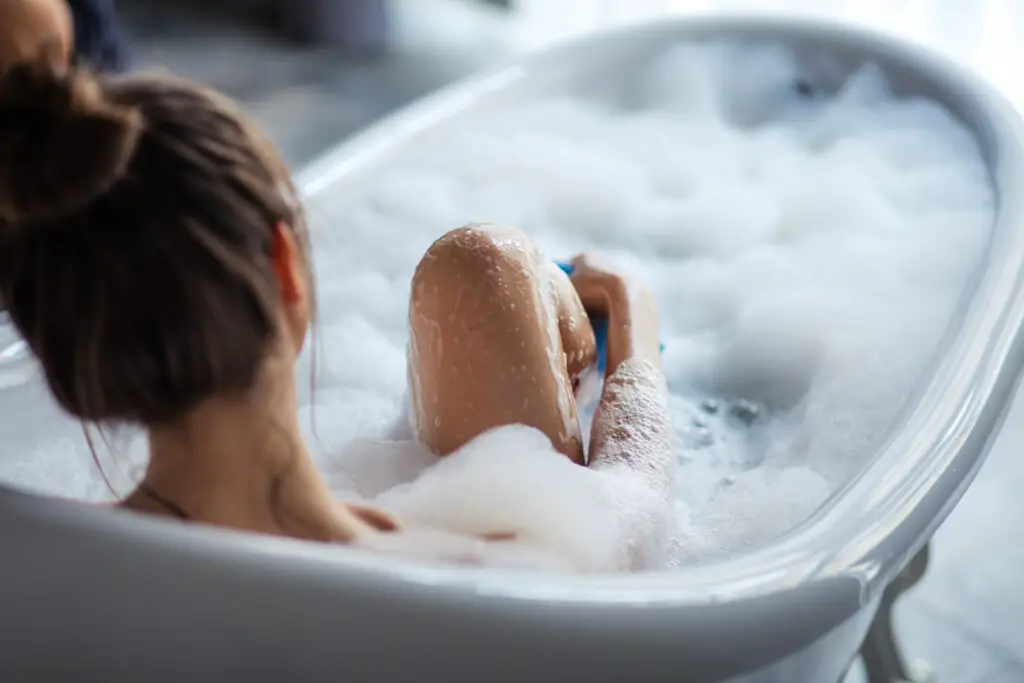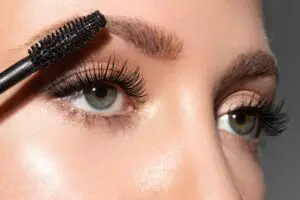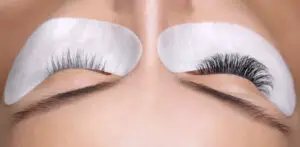Baking soda, a versatile household item, offers numerous benefits when added to bathwater. Known for its alkaline nature, baking soda can help soothe irritated skin, provide relief from itching, and even offer some detoxifying properties. This simple, yet effective remedy has become increasingly popular for those seeking better bath experiences and natural alternatives for skin care.
When incorporating baking soda into your bathing routine, the process is quite straightforward. The amount of baking soda to add can vary depending on the condition you wish to treat, ranging from a few tablespoons to a couple of cups.
As you soak in the bath for around 10 to 30 minutes, the baking soda gets to work, potentially alleviating discomfort and leaving your skin feeling refreshed. So, next time you’re planning a pampering session, consider the power of baking soda for a revitalising and soothing experience.
Benefits of Baking Soda in Bath Water
Skin Care
Baking soda, often known as sodium bicarbonate, is a popular addition to bathwater because of its numerous skin care benefits. A baking soda bath can help reduce skin irritation and itching, making it particularly useful for individuals with chronic eczema. Its alkaline properties can alleviate itching and soothe skin, leading to smoother and healthier skin.
Furthermore, it can help treat other skin conditions such as psoriasis and skin fungus, offering an affordable and natural remedy for various skin ailments.
Relaxation and Stress Relief
Soaking in a warm bath is already a well-known method for relaxing and reducing stress. Adding baking soda can enhance these effects, as it helps to balance the body’s pH levels. A baking soda bath can contribute to relieving tension and muscle pain, resulting in an overall feeling of relaxation and well-being.
Moreover, it can help reduce fatigue and promote better sleep, making it an excellent option for unwinding at the end of a long day.
Detoxification
Another benefit of adding baking soda to bathwater is its potential detoxifying effects. Baking soda baths have been known to help eliminate toxins from the body while also promoting overall detoxification. This can be especially helpful after exposure to environmental pollutants or experiencing high levels of stress, as both can contribute to an increase in bodily toxins.
By incorporating a baking soda bath into your self-care routine, you can support your body’s natural detoxification processes and maintain a healthier, more balanced system.
How to Use Baking Soda in Bath Water
Baking soda, also known as sodium bicarbonate, is a versatile ingredient that can provide numerous benefits when added to bath water. In this section, we will discuss the appropriate amounts to use, the recommended frequency, and how to enhance your experience by combining baking soda with essential oils.
Amount and Frequency
The amount of baking soda to use in your bath will depend on the condition you seek to treat. For a soothing and detoxifying experience, add between 5 tablespoons to 2 cups of baking soda to your bath water. Make sure to dissolve the baking soda well by swishing it around in the water.
You can soak in the baking soda bath for up to 40 minutes, but a minimum of 10 minutes is necessary for the baking soda to penetrate the skin and provide its benefits. As for the frequency, you can enjoy the baking soda bath several times a week for general relaxation, but adjust the frequency based on the specific skin conditions you are addressing and personal preferences.
Combining with Essential Oils
To elevate your bathing experience and further enhance the benefits of a baking soda bath, consider incorporating essential oils. These oils do not only add pleasant scents but also have various therapeutic properties.
For example, lavender essential oil is known for its calming and soothing effects, making it a perfect addition for relaxation and stress relief. To use essential oils in your baking soda bath, add a few drops to the dissolved baking soda before submerging yourself in the bath.
While these suggestions offer a base for getting started with using baking soda in bath water, it is essential to listen to your body and make adjustments according to how your skin responds to different amounts, frequencies or essential oils.
Precautions and Possible Side Effects
Taking a bath with baking soda can provide various benefits, such as soothing irritated skin and reducing itching. However, it is essential to consider certain precautions and be aware of some possible side effects to ensure a safe and pleasant experience.
Firstly, make sure not to soak in a baking soda bath for an extended period. It is recommended to limit the soak time to about 30 minutes to prevent any skin dryness or irritation that may result from prolonged exposure to the baking soda solution.
Furthermore, it’s important to stay hydrated by drinking plenty of water before taking a baking soda bath. Dehydration caused by the sodium content of the baking soda could lead to complications, such as kidney failure or slow, shallow breathing, if absorbed by the body.
Certain individuals should avoid baking soda baths altogether. Those who are pregnant, nursing, diabetic, have open wounds, skin infections or abrasions should not take these types of baths as it may pose additional risks according to Dr. Michele Green, a cosmetic dermatologist in NYC.
And finally, remember to create a relaxing atmosphere while you bathe by using candles, soft lights, and soothing music, thus ensuring a comfortable and enjoyable experience.
By following these precautions and being mindful of possible side effects, you can enjoy the benefits of a baking soda bath without putting your health at risk.
Alternatives to Baking Soda in Bath Water
Epsom salt is a popular alternative to baking soda for a relaxing bath soak. It is a natural compound composed of magnesium and sulphate, and it’s been used for centuries to soothe sore muscles and relieve stress.
Dissolving a cup of Epsom salt in warm bath water can help ease muscle cramps, promote sleep, and even detoxify the body.
Another option is to use oatmeal in your bath, especially for those with sensitive or irritated skin. Oats contain antioxidants and anti-inflammatory components that can moisturise and soothe skin conditions like eczema, psoriasis, or sunburn. Simply blend a cup of plain, uncooked oats into a fine powder and add it to a warm bath to enjoy its skin-calming benefits.
Adding essential oils to your bath water is another alternative to consider. Lavender, chamomile, and eucalyptus are just a few examples of oils that can provide a range of benefits, from relaxation to skin nourishment. Make sure to dilute the essential oils with a carrier oil, like coconut or almond oil, before adding a few drops to the bath water to avoid skin irritation.
Lastly, you can try using apple cider vinegar for a refreshing and cleansing soak. This natural substance has antimicrobial and anti-inflammatory properties, making it ideal for supporting skin health and combating body odour. Add one to two cups of apple cider vinegar to a full bath and soak for up to 20 minutes to experience its rejuvenating effects.
Ultimately, choosing the right alternative to baking soda in your bath water depends on your individual needs and personal preferences. Make sure to patch test any new substances on a small area of skin before using them in a full bath soak to ensure you don’t inadvertently cause any irritation.

I’m Jennifer a beauty and wellness expert. I believe in promoting a sustainable and healthy lifestyle from within. Helping people feel good is my passion; whether it’s teaching yoga or offering skincare advice.







